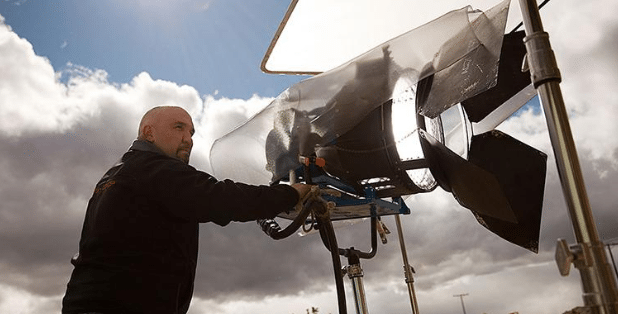Not everybody grows up dreaming of working behind the scenes – typically as children, we fantasize about being movie stars, famous athletes or musicians, about life in the spotlight. As we get older, however, and the necessities of life become increasingly challenging to meet, many of us realize that we need a baseline career even if we continue to harbor loftier ambitions. While the actor working as a waiter or indie rock bassist barista have become clichés in North America, not everyone is well-suited to the demands of hospitality. Trying to launch a music career while working eight-hour days at Starbucks is a grind, to say the least, that can often feel paralyzing.
In the current gig economy that is defining the work ethic of millennials, young people are finding more diverse day jobs to keep the lights on so they can continue working on that film script or hip-hop album. As the demand for content grows, the need for highly motivated workers on film sets is growing in correlation. There’s nothing wrong with wanting to be a globe-trotting lead actor, but it may serve you well to bide your time getting to know the ins and outs of the industry you hope to conquer. Thus, behind the scenes careers in entertainment can serve as a great alternative to bussing tables or working at Urban Outfitters.
Another great aspect of working in the entertainment industry is that it relies more on vocational training than formal education. If you can intern, connect with a mentor or start out part-time on a trial basis, there’s a huge opportunity to learn on the fly and grown your career over time. The current wisdom of the ages suggests that pursuing a bachelor of arts may well be a waste of time if you’re hoping to infiltrate a complex, ever-changing job market. Doctors still need med school and Lawyers still need to pass the bar, but if you want steady, engaging career that is based on real-world skills, bypass the ivory tower and dive right into the real world! For those who come from financially strapped families, tapping into outreach resources like Cietour.org and taking the first steps on this path may provide relief from the dread of tuition or the trap of a dead-end job.
What are these amazing behind the scenes opportunities, you ask? Here are four concrete examples:
Gaffer:
A gaffer – not to be confused with slang for an old man – is basically the head electrician on set, who’s in charge of the lighting system. Depending on the project, this can be an incredibly complex job that requires advanced problem-solving skills. Unlike churning out hundreds of cappuccinos, helping to nail the lighting on a tv show maybe leave feeling fulfilled at the end of the day.

Key Grip: The key grip is the yin to the gaffer’s yang. In charge of the cameras and the equipment required to manipulate the cameras, the key grip works closely with the director of
Stylist/ Makeup:
This is an incredibly malleable job with lots of room for freelance opportunities on and off the set. Of the jobs listed here, it requires the most training and it may take you many years of honing craft and knowledge to reach the sought-after job of key makeup artist. Whether it’s making sure that stars look their best or getting a sci-fi alien ready for camera, there are lots of different applications for the vocation, and if you’re interested in something artistic behind the scenes, this challenging gig can be extremely rewarding.







